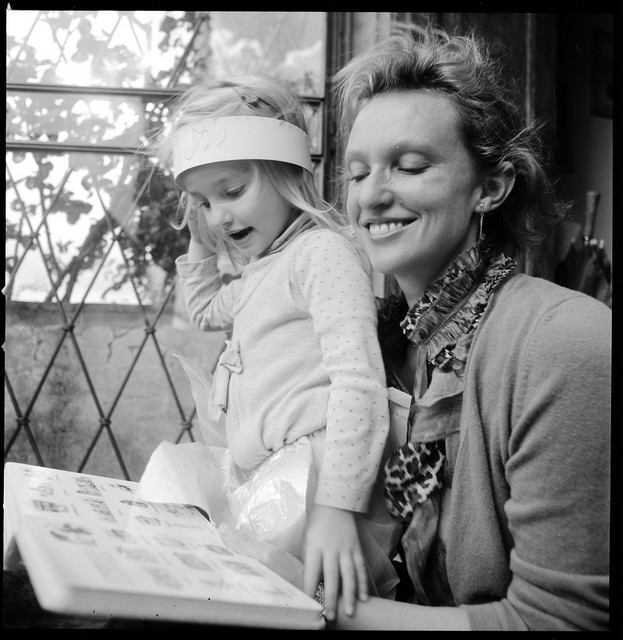We never spoke of our mothers.
They were the one taboo subject, never mentioned out of fear—fear that her name would unravel our appearance in our burgeoning lives.
We were kids, larval adults and we were ashamed.
Our lives at that age were filled with bluster, built on bravado and to make mention of our mother was to confess to whom had combed your hair that morning and where you got that spanking, shiny, new pair of shoes. To mention her name was to confess to having had your face buffed clean with nothing but spit, love and a dirty tissue.
To manifest her in a world outside your home was to invite embarrassment and a perception, however true, that there was little in this world you could do alone.
We were a proud bunch, unwilling to admit that she was our manager, our boss, our worker, our confidant, our provider, the object of our tantrums and our nurse.
And through all of that we had to keep her in her place, because she was ours, because we needed her to be that for us as the world was becoming a hard, overwhelming, exhilaratingly terrifying place. She was home. She was our sanctuary.
She had to remain pure, separate from the outside—So we never spoke of her.
And she knew.
So when we grew our own legs, sprouted our wings and made the first of our own, many mistakes, we came to realise this. Freed from our self obsessed, myopic state of adolescence, we began to see her differently; we began to see the flaws in the deity. We saw a woman, once a girl, who made mistakes and wildly improvised things that seemed so assured at the time. She cried, she hissed, she laughed, she screamed, she drank, she smoked, she felt, she faltered and sometimes she wanted to leave.
She was human and when that dawns on us, when we finally push past her shadow we think that we finally understand her. Then the unthinkable happens.
We reach the age she was when she birthed us. Or we buy a house. We get married. We get divorced. Or we have kids of our own. Whichever. Whatever. Something happens that puts us directly into her footsteps and in that moment we realise how little she knew, how hard it all must have seemed and how someone who in your eyes epitomised being an adult at the time, was nothing but a child herself.
For most of us, she’s still with us when we come to these realisations, cackling over our shoulders and pointing her fingers at us; roaring with joy and rightfully gloating at the horror of our epiphany and the final absolution of our discovery—that she tried.
That’s all. Sometimes because she had to. Sometimes because she wanted. Sometimes not to the best of her abilities. Sometimes beyond them. Yet she always did and lived with the consequences. She still does.
Yet, my friends and I still don’t speak of our mothers.
Jonathan’s mother was an insurance saleswoman, the first in her office. It was one of the proudest days of her life. She was beautiful and her husband never thought he was good enough for her so he would drink and call her terrible things. She left him in the end because she agreed with him—she was too beautiful for him.
Katie’s mother didn’t want what she had and left her daughter with a shadow. Katie never knew what a mother really was, having never really experienced it, so when she in turn had a child, Katie invented her own version and it had nothing to do with motherhood, or being a mother, as she didn’t know what that was. She just tried to fill her child with herself and what she knew, and hoped that it would be enough. When Katie met her mother again years later, her mother commented on what a good job Katie had done. It meant the world to Katie—she didn’t know why.
My mother was a nurse, like I am now and she is again. She wanted a lot from the world. She met my father. They fell in love. They changed each other’s course. She had a son. A while later, she had another. Despite her moods and needs, she loved them both. She suppressed parts of herself to be a better mother. I know that sometimes she thinks she failed.
When happy she is warm. When not she is an iceberg. When angry she could make the ground shudder with her mighty stomping heels and the power of her silence.
Into her late 40s, while reading, she would suck her thumb. When dancing she would always sing along with the song playing. In my early 20s, when sick, she had to drag me from the shower as I couldn’t move. Fevered, naked and wet, my mother dragging me across a tiled floor; I felt like I had just been born. I felt like Jesus being taken down from the cross.
Eight years ago she discovered the dead body of my older brother, her first born son in his room. She was alone. She has never spoken of it.
Only mothers can even imagine what that must feel like. Not fathers, not friends, not brothers. No one. It is a weight that I can only imagine. It is a burden that can’t be measured. Yet she continues, sometimes because she has to, sometimes because she wants to. Sometimes not to the best of her abilities, sometimes beyond them.
A deity. Cracked. And through those cracks we can see what lies beneath.
We never spoke of our mothers.
We didn’t know any better.
Relephant Read:
Gentle Mother, Fierce Warrior.
Author: RW Adams
Assistant Editor: Lindsay Carricarte / Editor: Catherine Monkman
Image: Flickr/Mateo Bagnoli/ Flickr/Jamie







Read 3 comments and reply